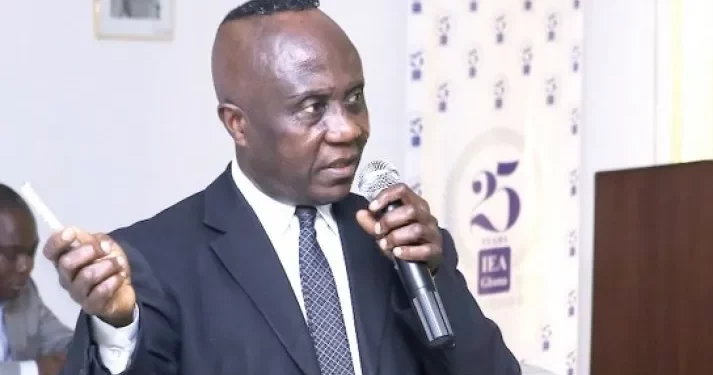IEA Director of Research defends economic merit of a 24-hour economy in Ghana
As Ghana grapples with economic challenges, the dialogue over the 24-hour economy underscores the importance of nuanced policy making and a comprehensive understanding of the potential benefits and challenges associated with such a paradigm shift.
- Advertisement -
Dr. John Kwakye, Director of Research at the Institute of Economic Affairs (IEA), has defended the concept of a 24-hour economy in Ghana, asserting its economic viability amid high unemployment rates. Dr Kwakye urged critics, including Vice President Mahamudu Bawumia, to delve deeper into the proposal before dismissing it outright.
In a tweet, Kwakye emphasized, “If you don’t understand a concept, be modest enough to admit so. Don’t rubbish and dismiss it out of hand.”
- Advertisement -
He argued that a well-planned 24-hour economy could harness idle resources and capacities in a country grappling with unemployment.
- Advertisement -
Vice President Bawumia, during a public address, countered the 24-hour economy proposal questioning former President John Dramani Mahama’s comprehension of the concept. Dr Bawumia pointed out that essential services such as hospitals, utilities, fuel stations, and eateries already operate 24 hours in Ghana.
“John Mahama says he has a new idea. What is the idea? He says he wants a 24-hour economy. He doesn’t even understand that policy,” remarked Dr Bawumia. He highlighted existing 24-hour operations in various sectors, asserting that Mahama’s proposal lacked a nuanced understanding of the current state of affairs.
- Advertisement -
Former President Mahama, who introduced the 24-hour economy as a strategy for job creation, defended the concept amid criticism. He underscored that the proposal aimed to generate employment opportunities in the country.
The ongoing debate reflects a divergence of opinions among political figures on the feasibility and understanding of implementing a 24-hour economy in Ghana. The discourse encompasses considerations of economic planning, employment generation, and the practical implications of extending operational hours across diverse sectors.
As Ghana grapples with economic challenges, the dialogue over the 24-hour economy underscores the importance of nuanced policy making and a comprehensive understanding of the potential benefits and challenges associated with such a paradigm shift.
- Advertisement -


